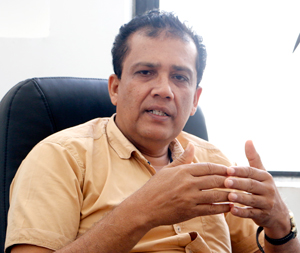Shaping our living spaces for tomorrow
 With new developments steadily emerging in the Sri Lankan cityscape, the conversation around Urban Design is growing louder as we consider how to shape towns, cities, streets and spaces of tomorrow.
With new developments steadily emerging in the Sri Lankan cityscape, the conversation around Urban Design is growing louder as we consider how to shape towns, cities, streets and spaces of tomorrow.
The recent establishment of the Institute of Urban Designers in Sri Lank seeks to meet that need for Urban Design to support an increasingly more modern city layout, says Dr. Janaka Wijesundara, Director of the Programme of Urban Design at the University of Moratuwa.
Formal training in Urban Design first began in the 1960’s in Universities overseas, but here in Sri Lanka, Urban Design is still relatively new since its introduction to the University curriculum in 2010. The country has advanced in several disciplines such as telecommunications with the frequent additions of new wifi and data features available across the island however, according to Dr. Wijesundara, Urban Design developments have been trailing behind in comparison. “Therefore there is a greater need to intervene with urban design as a key profession that we can use to improve our public space as well as the city space,” he says.
Urban Design addresses how people look at and use their environment. People care about the appearance, feel, and livability of the areas they frequent. As such, there’s a lot that can discourage a person from entering public spaces like heavy traffic, overbearing noise and pollution. Dr. Wijesundara explains that these are just a few of the more straightforward challenges Urban Designers are working to overcome. Cities are areas with high population density and thus also need to be safe and resilient from natural and as well as man made disasters. With the recent restrictions and regulations prompted by COVID-19, Dr. Wijesundara also added that Urban Designers will be needed to design areas which will ensure the safety of the public by incorporating these new safeguards.
In recent years, for those living in Colombo especially, the sight and sounds of construction is so common, the absence of it seems almost unusual. Mega city developments, like the Port City Colombo development, are a notable source of these. These types of large scale projects progress in a multi disciplinary and more centrally linked way, explained Dr. Wijesundara. Similarly, he envisions the future of city development with integrated development among all disciplines, like architecture, engineering, landscaping and other allied professions. “We want to make sure our cities are livable, that our cities are sustainable, that our cities are environmentally friendly and that we take into consideration the people’s perceptions, attitudes and happiness.”
However, sometimes the issue with these kinds of advances is the concern that we may be eliminating the history and culture steeped in some of these locations when the time for development arrives. Dr. Wijesundara assured that urban designers are specially trained to perceive how people will react culturally to these types of changes and thus, design areas which will be inviting to people while preserving the historical or cultural significance.
The Institute of Urban Designers in Sri Lanka was formed in August of this year. As President of the Institute, Dr. Wijesundara shared that the Institute aims to make strides in standardizing the Urban Design practice, reaching international standards of Urban Design, promoting education in Urban Design, evaluating how Urban Designers can contribute to policy making and much more.
The institute is currently accepting applications for membership. Eligible candidates must possess a Masters Degree in Urban Design (local or international) with 1 year of experience or a Diploma of Urban Design with experience, a Bachelor’s Degree in Urban Design (international) with experience and those from allied disciplines may also be accepted considering their level of experience.
For more information, contact Dr. Wijesundara through sluid2020@gmail.com or jawij@yahoo.com


